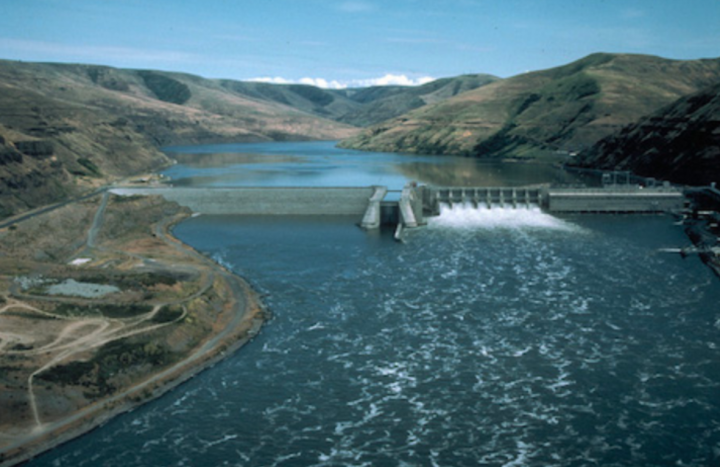
US President Donald Trump has revoked a Biden-era policy directive that could have advanced the removal of the Lower Snake River dams in the Pacific Northwest, citing concerns over energy reliability and cost. The decision drew praise from the National Hydropower Association (NHA), which emphasized the value of the dams’ contributions to the regional energy grid.
In a presidential memorandum titled “Stopping Radical Environmentalism to Generate Power for the Columbia River Basin,” Trump directed several federal agencies to withdraw from a 2023 Memorandum of Understanding (MOU) associated with ongoing Columbia River System litigation. The MOU, supported by the Biden administration, had focused on restoring fish populations and considered dam breaching as one potential measure.
The memorandum states that the September 2023 directive placed “misplaced concerns about climate change” and “equitable treatment for fish” above national energy needs. Trump’s action rescinds that policy and instructs the departments of Energy, Interior, Commerce, and the Army Corps of Engineers to halt related environmental review processes and re-evaluate any commitments or funding tied to the prior administration’s efforts.
The National Hydropower Association responded positively to the announcement. In a statement, the organization said:
“Thank you, President Trump, for valuing hydropower and taking action to preserve the existing Lower Snake River Dam system.
The 3000MW of reliable, emission-free hydropower generated by the dams are vital to the Pacific Northwest’s economic prosperity, providing electricity to an estimated 2.5 million homes. While past discussions about the dams’ future did not properly include industry, we believe any future conversations about these assets going forward must be transparent and include perspectives from all stakeholders.”
The NHA also highlighted broader concerns with current federal energy policy, particularly in the context of the recently approved House budget reconciliation bill.
“While this action is an important step in protecting these important, baseload hydropower resources, the reconciliation bill recently approved by the U.S. House of Representatives has a glaring blind spot. In its current form, the bill does not properly value baseload technologies, which aid electrical grids in handling increasingly extreme weather, energy demand driven by AI, and the unrelenting need for 24/7 reliability.”
“NHA urges Congress to recognize the role of hydropower by ensuring it receives fair and equitable tax treatment alongside other baseload energy sources in the budget reconciliation bill and that the bill provides long-overdue federal support for dam safety and environmental investments to preserve the existing fleet for future generations.”
Trump’s memorandum requires agencies to submit reports within 30 days detailing any actions taken under the previous administration’s policy, including an assessment of how federal funds may be recouped and what commitments can be reversed. The administration has also halted the planned Supplemental Environmental Impact Statement and associated Notice of Intent related to Columbia River operations.
The Lower Snake River dams have long been a point of contention between clean energy advocates, tribal nations, environmental groups, and hydropower stakeholders. While some have called for their removal to support salmon recovery, others argue that the dams are essential to grid reliability, irrigation, and transportation in the region.

